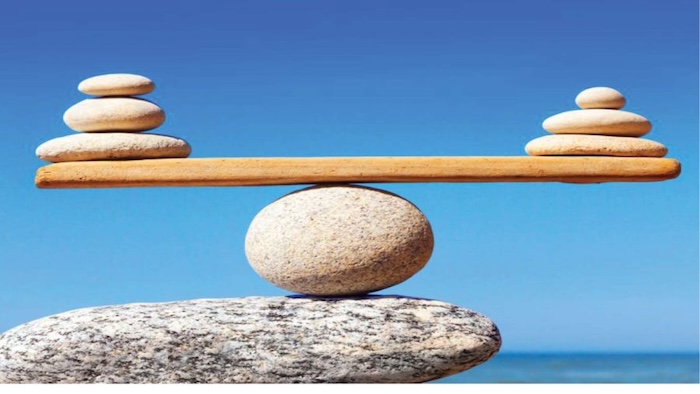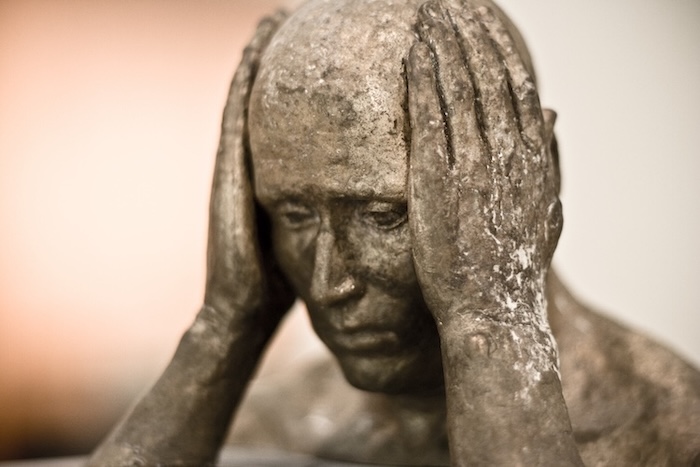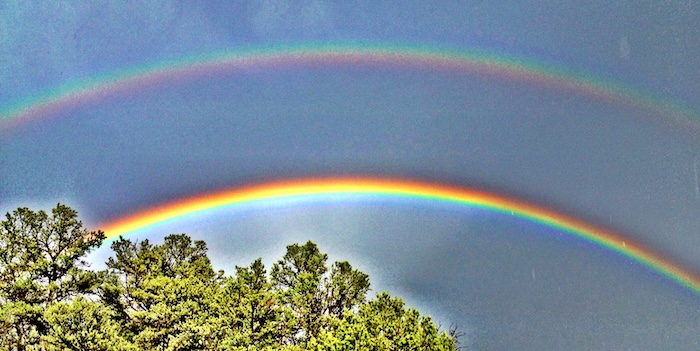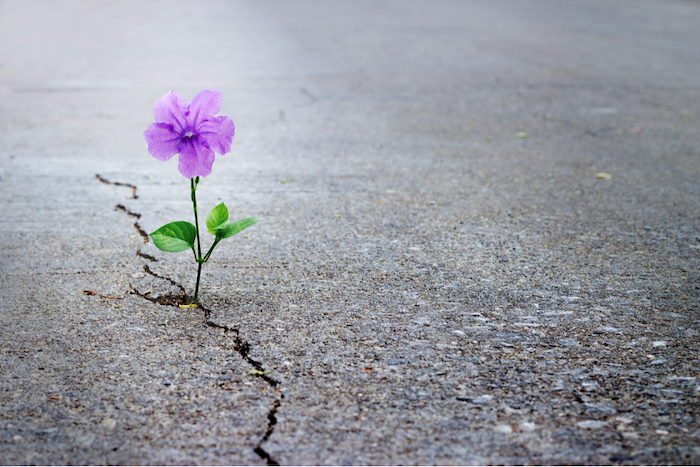Vitapoise: Mastery of Being
In an age when our country seems dominated by petulant bumbling billionaires and their sycophants, it can be challenging to sort through the noise of animus and deceit to find a working compass with a steady needle. In America, staying on a course denominated in reason and virtue may never be harder than it is today. There seem to be two worlds colliding. An objective one based in truth and reality and a performative one based in illusion and delusion. Most of the rest of the world beyond America remains tethered to an objective model notwithstanding the occasional flourish of performative imitators like Bolsonaro in Brazil or Bukele in El Salvador who have attempted, or are attempting, to adopt the Trumpian formula of greed artfully wrapped in the illusion of public service. In the last twenty years or so, America’s exceptionalism has flipped from being an exemplar of liberalism and capitalism to a hollowed-out shell of illusion and delusion allowing the most vacuous and virtue-free among us to rise to power.
While the West has always measured its success by results, and the East by its intentions, both models are based in substance. Both have philosophically sound foundations. In the modern era, the shining star of the West—the United States of America—was the beacon of the objective world. And while performative actors like Charles Lindbergh in the 1930s, or George Wallace in the 1960s came and went, none gained durable traction in a society that clutched its founding values as articles of faith and devotion—well beyond just articles that comprise its Constitution.
In the last twenty years, that all changed. In an age of an extraordinary abundance of wealth and thoughtless un-edited messaging spewed through countless channels of communication, we became overwhelmed by shit that caused the needle on our compass to spin off of its axis. Unlike past performative clowns, Donald Trump controls the power of the presidency; the damage of deceit is likely to be much more extensive making recovery longer and less certain. However, in the meantime, there are practices that can support our well-being.
Let me acknowledge that life is hard, and knowing how to live it is harder. As the cynical person might claim, “life is hard and then you die.” But life is also beautiful. The half-glass full person embraces their gift of life as a destiny to be realized cradled by the hope of each day’s sunrise. In the cacophony of performative deceit that gets all the attention of our complicit and co-dependent media, we must learn how to tune out to (ironically) tune in; to ignore so we may focus. We must transcend the rabble of the sweaty suited bloviators and makeup-caked pundits to keep our bearing on true north.
How to be in this world—how to achieve a mastery of being—is captured in the practice of what I call vitapoise, which supports a balanced and centered life pursued with a fierce sense of grace that enables acceptance of life’s realities while meeting them with both love and resilience. Vitapoise includes both dispositional orientations and modalities of behavior that, if honored with a sense of diligence, produces a liberation allowing what I have called the “divinity within” to be actualized. It melds East and West—intention and results—into a sacred manner of being.
Below are five dispositions and five modalities that while not exhaustive are foundational to support the practice of vitapoise.
Vitapoise Dispositions:
- Always open. Always curious. Live every day and each moment with all five senses open and engaged with the world in front of you—to both the pleasant and the disturbing. Don’t resist the world, accept it. Moreover, what can you learn from this scene, issue, situation, or person? Regardless of how you feel about something, it is an opportunity to learn. And, as Socrates taught us, learning is the key to fulfillment in life.
- Lighten up. As the avuncular and satirical English writer, G.K. Chesterton observed, “Angels can fly because they take themselves lightly.” This disposition is slow to accept and fast to shed burdens, including the burdens others may try to impose upon us, but most particularly the burdens we inflict upon ourselves through our own self-criticism. Get off your own back. Travel light.
- Honor virtues. Virtues are the signposts and guardrails that keep us on the path of the good and true. Honesty, courage, humility, and compassion are just a few. When exercised with integrity, virtues comprise the spine of our character—each virtue a vertebra. Virtues are a great barometer as well. When we feel good about ourselves chances are we are living in concert with our virtues, when we feel bad chances are one or more of our virtues has been compromised. We know right from wrong by the time we have completed kindergarten. It is in adulthood that our many desires or aversions get us crosswise with what we know is right.
- Opposites are good. Without heads there could be no tails. Without black, white isn’t possible. Without a buyer there can be no seller. In our world today that is full of certitude and righteousness, we forget that without the other side, our side would not exist; we would have no identity. Ironically, opposites are also the impetus to unity. This underscores the value of pluralism our founders thought was critical to a union. Further, while we often exhaust ourselves in defeating the “others,” without opposites we lose the value of best solutions that are almost always a combination of certain elements of opposites. Black and white are absolutes while gray offers many shades to consider—more and better options.
- Respect is the antidote to deception. Respect the facts, the truth, and reality. Honor others as you would/should yourself—above all else respect thyself. As the great American writer, Joan Didion, once wrote: “self-respect is a discipline, a habit of mind that can never be faked but can be trained, coaxed forth.” Respect is indifferent to the delusions that often accompany desires and aversions. It is foundational to reliable decision making. It is one of those dispositions that if conveyed to others will likely return in-kind.
Vitapoise Modalities:
- Mindful awareness. A calm and quiet mind is the most powerful asset one can have; much more so than a powerful body. It is essential to physical, mental, and spiritual health. It is the capability to take in the world without fear or trepidation. To observe what comes before you with respect while allowing all things to travel through and out of your mind without suffering. And, it ain’t easy. It is work. Mindfulness requires both the strength of acknowledgment and the discipline of passivity. Remember this one maxim: what you resist persists. While mindful awareness is best accomplished through breathing techniques and meditative practice, it is also supported by indulging in contemplation where time and space allow cognitive liberty and ingenuity. Mindful awareness is the Holy Grail of well-being.
- Nurture acuity. A sharp keen mind will assure almost any objective you attempt to achieve. This is not about IQ, although being intelligent certainly helps. Acuity is about seeing things as they are and, moreover, having the power of discernment that blocks your egoic preferences from intervening to alter reality. The distractions and deflections deployed by many of today’s politicians, which are designed to deceive, are thwarted by our acuity. Acuity is essential to tranquility. It is the elixir that eradicates many common sources of disturbance that upset our lives. Acuity is kryptonite to bullshit.
- Default to empathy. You don’t necessarily have to walk in someone else’s shoes, but we should at least have the capacity to understand how it might feel—to consider that our situation is not theirs and suspend our judgment as to how they arrived in their particular predicament. To feel-into the circumstances of others is a basic tenet of humanity that should be applied to our consideration of all beings, not just humans. Webster defines compassion as a noun, but as the Buddhist monk Thich Nhat Hahn argued that without action compassion can never be fully realized. We must treat compassion as a verb.
- Ego management. Our egos are a hoax carefully designed and crafted to deceive others, but mostly to deceive ourselves. That is not to say they have no value; they are critical to our bonding with others and to our differentiation from But egos are a double-edged sword that can both clear a path and cause us to bleed out. Classic Buddhist teachings are very focused on recognizing and avoiding the pitfalls of ego. Ego death is a common aim of psychedelic-enabled journeys. Many believe egos are the enemy of the soul which, as I (and others) believe, the soul is the vault of eternal wisdom that survives our physical life. My view is perhaps more practical as to the conflict between ego and soul. Through mindfulness, try to access the wisdom of your soul to moderate ego-driven actions. Ask them to work together.
- Self-care. Have empathy for yourself, too. Treat yourself like you love yourself! Whether an idea, or food, or drink, or medicines, or supplements take care about what goes into your mind and your body. Don’t just feed yourself, nourish yourself. Develop an awareness around what works for you; that is all that matters. In addition, treat your mind and body to exercise every day. Avoid our healthcare system as much as possible; in the last twenty years healthcare has become a travesty-of-care in America. Finally, learn to savor—to let awe land. Whether a double-rainbow, or doing the dishes, both should be addressed with a sense of awe. Practice mastery-in-the-moment, one moment at a time, and every moment will be awesome.
I am far from mastering vitapoise, but as with any practice it is the journey that counts. Its value is realized in the discipline of diligence. Eventually, modalities like mindful awareness can be achieved not just during meditation, but during a simple walk through town. A preternatural sense of calm sets in. If we do our job, the nutjobs streaming and screaming at us as if they are the kings of the world will pass by like an unpleasant odor in a stiff wind. Moreover, we can and should starve them of the attention they need to survive unless, of course, you wish to laugh at them. There is nothing a narcissist-wannabe-fascist likes less than being laughed at; being unmasked as the weak charlatans they are terrifies them.
Remember, it is our world, too. Be the one sitting on the park bench with the curious grin. Unperturbed and undeterred.
Note on “No Kings” day. Thousands jammed Central Park in my town of Boulder, Colorado yesterday for “No Kings” day. Quite a surprising turnout. A crowd that our CU football Coach Prime would have envied. Many very creative signs, my favorite (as an historian) was “King Free Since 1783” that recognized the Treaty at Paris where the British acknowledged America’s independence following the Revolutionary War. Most impressive to me, however, were the number of American flags. I have long advocated for those who were against this president to embrace the flag; few have. But yesterday was—finally—different.










